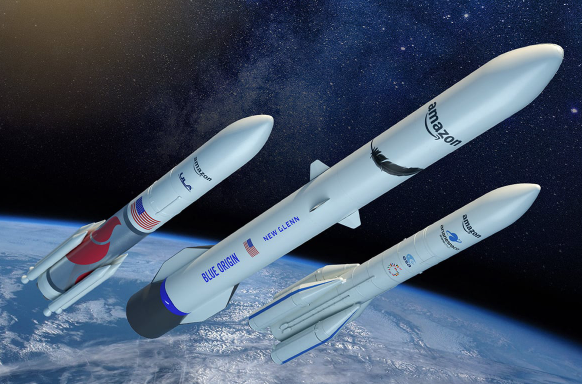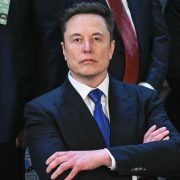The US Federal Communications Commission (FCC) has given Amazon the all-clear to launch 3,236 satellites into orbit to support its upcoming Project Kuiper broadband service.
The FCC’s International Bureau approved the project’s satellite debris mitigation plan, despite opposition from what will be its main rival — SpaceX’s Starlink.
The latter wanted the FCC to limit the initial number of satellites Amazon could launch to 578.
The Elon Musk-owned space agency said this was needed to address the Kuiper constellation’s ability to co-exist with other satellite systems currently orbiting in and around 590-610km above Earth.
This is the altitude at which some Starlink and Viasat satellites operate.
“Granting an initial 578 satellites of Amazon’s 3,236-satellite system would offer Amazon a path to begin deploying for ‘many months,’ while providing the Commission with time and additional data to assess the serious issues raised in this proceeding,” SpaceX argued in its filing.
But the FCC found that the limit was unnecessary, as the conditions adopted as part of the approval addressed co-existence issues.
“While SpaceX expresses concern over Kuiper’s ability to co-exist with other systems at certain altitudes, similar to Viasat, it does not specify a particular risk presented by the deployment of an identified planned system,” the FCC said.
The FCC also rejected SpaceX’s arguments that there were “large uncertainties” in Kuiper’s plan to determine the predicted trajectories of its satellites if they were to suffer failure or were decommissioned.
Amazon is years behind
Amazon previously objected to Starlink’s plans, including the plan to bump its constellation up to 30,000 satellites.
SpaceX started launching its Starlink satellites in 2019 and already has 3,271 in orbit, with approval to launch another 7,500 in the coming years.
The satellites already enable it to provide global coverage, but regulatory approval remains an issue in several countries, including South Africa.
SpaceX also wants to continue adding satellites to increase the service’s overall speeds, capacity and reliability.
Its latest generation of satellites can use lasers to communicate with each other, reducing the need for ground stations.
Amazon has a lot of catching up to do.
The company only announced deals for 83 Kuiper satellite launches over five years in April 2022.
Arianespace, United Launch Alliance, and Amazon’s sister company Blue Origin will carry out the launches.
Its first two prototype satellites are expected to be carried into orbit by United Launch Alliance’s new Vulcan Centaur rocket.








Comments